BJP's plans a low-tax, low-interest regime
For the Bharatiya Janata Party, the first 100 days would see its government initiating measures to bring back Indian money stashed away in secret tax havens. LK Advani, the party's prime ministerial candidate, has promised to appoint an expert committee to pursue and track the Indian money in those tax havens.
If voted to power, the BJP will immediately resume the employment-generation through massive investments in infrastructure projects by nursing agriculture back to health, and by making credit easily accessible to industry.
The party has announced it will bring down interest rates for home loans so that housing becomes affordable and helps in reviving the stalled real estate sector, which has witnessed huge job losses.
It will put in place a low-tax, low-interest regime so that people have more money and their purchasing power increases. Towards this end, income up to Rs 3 lakh (Rs 300,000) will be exempt from income-tax.
Women and senior citizens will receive an additional exemption benefit of Rs 50,000. In the first 100 days of coming to power, the party will make the income of all senior citizens by way of pension exempt from income-tax.
Image: Bharatiya Janata Party leader L K Advani.
Arko Datta/Reuters
Economy: What BJP, Cong, Left promise
Image: .To incentivise savings, all interest earned on bank deposits other than by corporate houses and those who have business income shall be exempt from tax. The party has resolved to dispense with clubbing of agricultural income with other sources of income for determining tax liability on other income.
It has also decided to abolish the Central Sales Tax and Goods while it will rationalise the Services Tax between 12 and 14 per cent.
This apart, the capabilities of the manufacturing sector will be enhanced by easing credit availability. Reform will be introduced to improve productivity and greater capital formation. SMEs will be the preferred route for employment creation: the criteria for classifying SMEs will be reviewed.
There will be countervailing restrictions on foreign companies operating in India, especially in the services sector, which, on account of domestic laws of their respective countries, have introduced restrictions on hiring Indian employees with valid work visas.
This apart, the BJP will strengthen the regulatory bodies, which are supposed to monitor the performance and balance sheets of companies, to prevent corporate fraud.
Image: Supporters of India's main opposition Bharatiya Janata Party wear masks of BJP leader L K Advani during an election campaign rally at Biaora in Madhya Pradesh.
Raj Patidar/Reuters
Economy: BJP, Cong, Left promise the moon
Image: .Expansion of NREGS on Congress wish list
If the Congress party retains power and leads the next government at the Centre, the provision of 25 kg rice or wheat at highly subsidised rate for the poor will be one of the first decisions on its economic agenda.
"The Indian National Congress pledges that every BPL family, either in rural or urban areas, will be entitled by law to 25 kg of rice or wheat per month at Rs 3 per kg," its manifesto reads.
"This scheme may be implemented at the earliest along with the expansion of the National Rural Employment Guarantee Scheme, a senior Congress leader told Business Standard.
The party plans to provide "at least 100 days of work at a real wage of Rs 100 a day for everyone" as an entitlement under the NREGA. Currently, the scheme is limited to one person per below poverty line (BPL) family in the rural areas.
"The new government will have to present a full Budget very soon and if we come to power, our government might take that opportunity to launch the scheme," he added. For this purpose, the party will also enact a National Food Security Act soon after coming back to power.
Image: Congress party president Sonia Gandhi.
Babu/Reuters
Economy: BJP, Cong, Left promise the moon
Image: .Another Congress leader pointed out that the key UPA ally in Tamil Nadu -- the DMK -- had promised a similar deal for the ration card holders in that state in the last Assembly polls.
"As soon as Karunanidhi was sworn in as the chief minister, the first thing he did was to start the scheme," said the leader. Karunanidhi initially priced the food grain at Rs 2, eventually the price was further reduced to just Re 1 last year.
Union Rural Development Minister Raghuvansh Prasad Singh was keen to expand the scheme even during his tenure. But highly placed sources in the ministry claim that the prime minister wanted to plug all the loopholes of the current scheme before going ahead with the expansion.
There is also a proposal to include agricultural work in the realm of the NREGS. Currently, only non-agricultural manual jobs are allowed under the flagship programme of the UPA.
The Congress top leadership also claims maintaining the high GDP growth rate will certainly be a priority area of the new government.
Image: Prime Minister Manmohan Singh and Congress leader Rahul Gandhi.
Munish Sharma/Reuters
Economy: BJP, Cong, Left promise the moon
Image: .CPI(M)'s priority: Economic revival
Massive public investment to boost the purchasing power of the people will be a key immediate objective of the Communist Party of India (Marxist) if it is able to pull up its fragile Third Front force to form the next government.
Already the top CPI(M) leadership has rejected the three stimulus packages announced by the Manmohan Singh government as "grossly inadequate".
While CPI(M) general secretary Prakash Karat and top party leadership continues to claim in election rallies that it would force a "renegotiation" of the Indo-US nuclear deal if a friendly government comes to power, politburo sources claim the main focus will be on steps to revive the economy as a priority area.
Sitaram Yechuri, politburo member and the party's think tank on economy, has often slammed the ruling United Progressive Alliance (UPA) for wrong stimulus packages and harped on the need of massive public investment to tackle recession.
"The classic case is the reduction in aviation turbine fuel. Even as the government has made it cheaper than petrol, the airlines are yet to see any increase in passenger traffic. This is because people don't have the money to afford the luxury of air travel. If people don't have money to buy goods, no relief to corporate sector will work," Yechury has argued.
Image: Prakash Karat, the chief of the Communist Party of India (Marxist) (CPI-M), speaks during an election rally in Agartala.
Jayanta Dey/Reuters
Economy: BJP, Cong, Left promise the moon
Image: .Interestingly, the party initially wanted the Third Front forces to come out with a common vision statement in the run-up to the polls. According to a Left leader, copies of the manifestoes of the four Left parties were provided to Third Front leaders like H D Deve Gowda and Chandrababu Naidu.
So, the Third Front and the Left have so far not decided any common set of goals or priority tasks for the next government.
The Left parties, however, are clear that they want "specific relief packages for affected sectors like textiles and garments, gems and jewellery, leather, handicrafts, coir, cashew, marine products, software and IT, aimed mainly at the small and medium enterprises" as another priority task of the government.
In its manifesto, the CPI(M) has sought "moratorium on job cuts for workers; enhancing social security measures for workers" and "preventing wage and pay cuts for workers and employees".
Image: Communist Party of India-Marxist party protestors.
Jayanta Shaw/Reuters

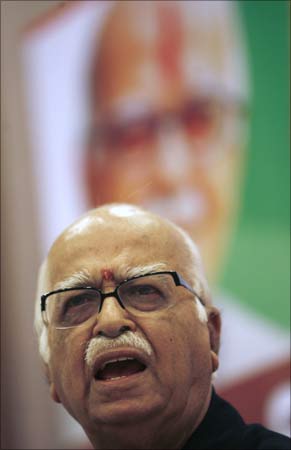
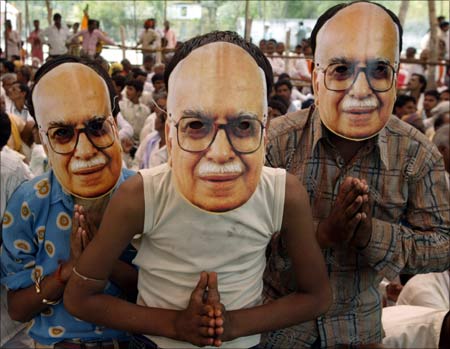
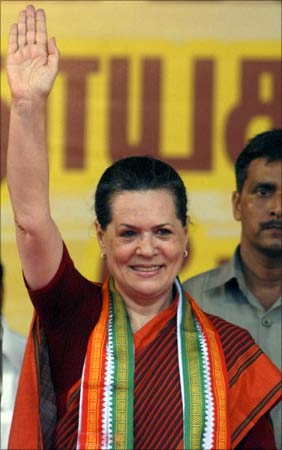
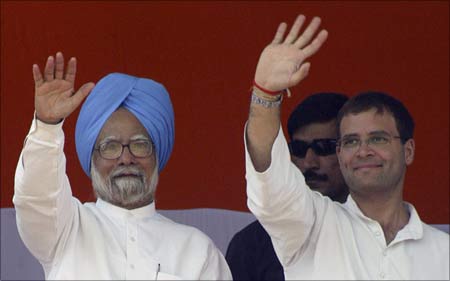
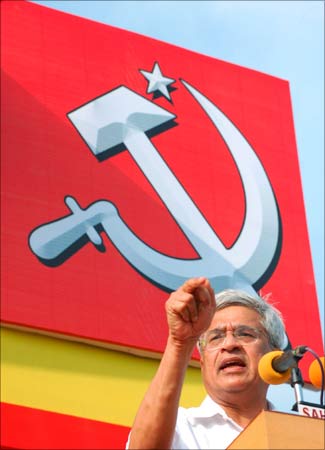
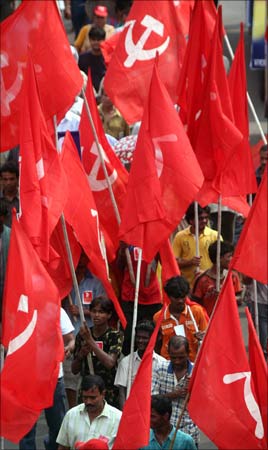
article